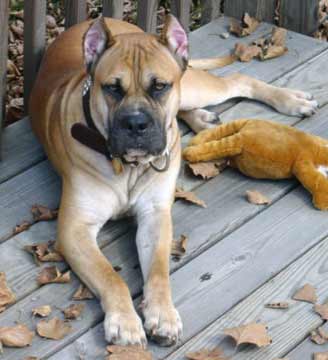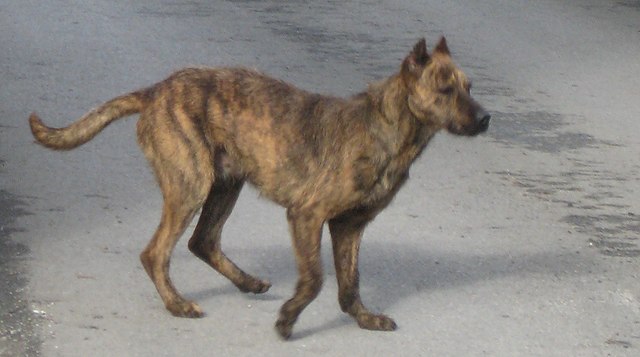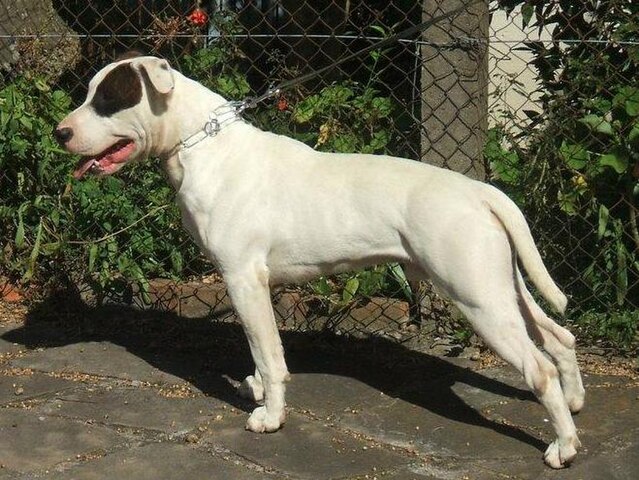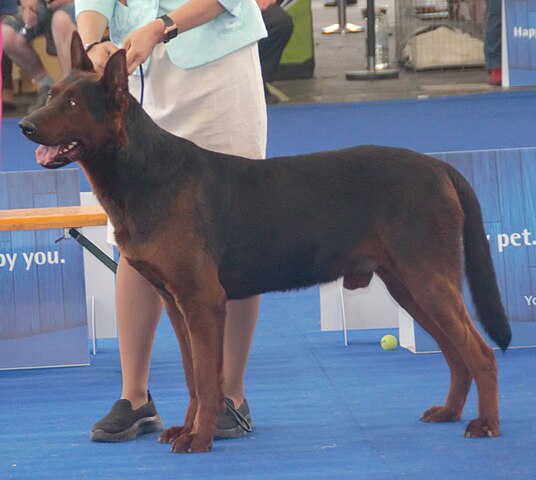The Dogue de Bordeaux is a powerful, French mastiff-type breed. Although a fantastic choice for select owners, this breed is certainly not for everybody. Admirers of the breed should be aware of what it takes to own one before they seek out a Dogue for themselves, lest they find themselves in over their heads. This is not a dog for novice owners!
To start with, the Dogue can end up being more expensive than other breeds to take care of. As a very large breed, food costs alone can be considerable. Unfortunately, the breed also has a number of health issues. Getting a puppy from a responsible breeder who performs health tests can help your chances, however it is always best (for any dog) to be prepared for the worst. Allergies, for example, are a common issue and may result in an owner spending more on specialized diets.
Despite having the appearance of a “tough dog”, the Dogue craves attention from his owner. This is definitely not a breed to just throw outside without much human contact. He needs engagement from his owner, whether it be in the form of working, exercising or just plain affection (preferably all three). A Dogue left outside to “fend for himself” may soon become fearful or aggressive and his temperament could quickly become a liability. Raised correctly however, this breed should never show aggression. A Dogue with a proper temperament is loyal and friendly, especially to his family.
The Dogue is known to have a stubborn temperament. This, combined with his size, means that it is vital that he is taught rules and boundaries from an early age, before he gets so big and hard to control. When training in obedience, patience is often required. Although he should never be handled roughly, he does need firm (yet fair) discipline. This is one of the primary reasons why he should be owned by experienced dog owners.
When it comes to children, the Dogue generally gets along with them quite well. That said, the child must be taught to respect the dog and the dog should ideally be socialized to children when he is young. It should also go without saying that, with very small children, their interaction should always be supervised. This is due to the Dogue’s large size. Although gentle, it is easy for him to accidentally injure a child in play. Common sense should always be applied. 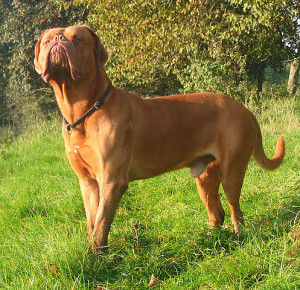
Dog-to-dog aggression is not uncommon in the Dogue de Bordeaux, particularly between males. Although it is possible to raise the chances that a Dogue will get along with another dog by socializing extensively from puppyhood, this does not always work. Once they reach adulthood, many will show signs of hostility toward other dogs. Whether or not a Dogue likes to be around other dogs, it is still important that he be trained to behave civilly around them, such as at the vet or on a walk.
His exercise needs are fairly low compared to other breeds, however this is not to say that he doesn’t need any at all. At the very least, he should be taken on a walk once or twice a day. A fenced yard in which he can romp is great as well, but is not a substitute for a walk. A Dogue whose exercise needs haven’t been fulfilled may become destructive in the home.
As might be ascertained by his distinctive, loose-lipped face, the Dogue is a drooler! At worst, an owner may find drool on their clothes, belongings, furniture… and even walls! What he lacks in hygiene, however, he makes up for by being quiet and calm in the house. This is not a loud or yappy breed. The one exception to this rule is that he will normally bark when someone comes onto the property.
One last word about the Dogue de Bordeaux for those still interested in acquiring one. The average lifespan of the breed is unfortunately short, 6-7 years being typical. For people who own and love them, however, that short time is worth it. If you have a Dogue de Bordeaux and are looking for a dog trainer in Austin or the surrounding areas, call us today!
